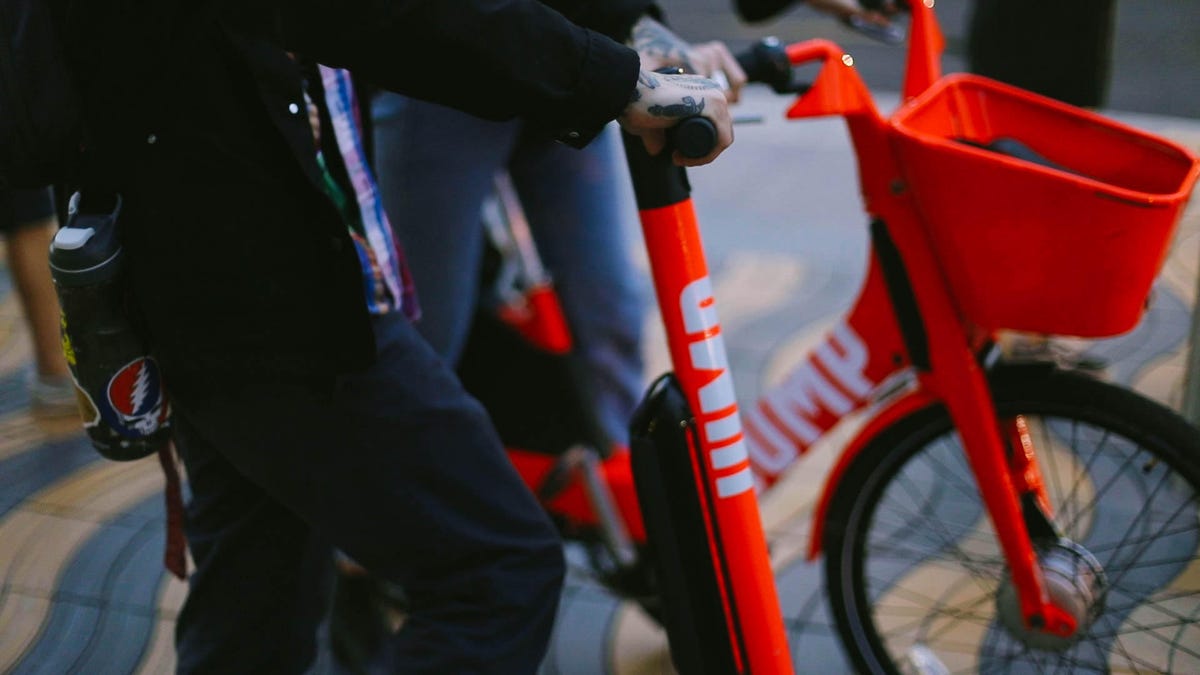Uber plans to file federal lawsuit against Los Angeles over location data privacy
The data privacy battle between Uber and the Los Angeles Department of Transportation has been brewing over the last 18 months.

Uber, which owns Jump, is suing the LADOT after the government agency asked for real-time location data requests.
Uber's legal battle with Los Angeles is heating up, as the ride-hailing company looks to take its data privacy dispute to federal court. The company's scooter service's permit is suspended in LA after Uber refused to provide the Los Angeles Department of Transportation with real-time location data on its riders.
The lawsuit was intended to file on Monday, and addressed the LADOT's requests for real-time location data, a policy the city instituted in September 2018 for scooter companies. An Uber spokesman said that the company had full intention to file the lawsuit on Monday, but faced sudden delays hours before. The spokesman did not explain what the delay was.
The company still intends on filing the federal lawsuit by this week, the spokesman said.
The data requests are a part of the city's "Mobility Data Specification" plan -- which cities like Seattle, Austin, Texas and Louisville, Kentucky have also adopted.
Governments are requesting scooter location data because they believe it can help with city planning and also prevent tech companies from running roughshod over public roads, as ride-hailing companies did during its boom.
Uber provides several cities with its scooter location data, but argues that Los Angeles's request goes too far by asking for real-time information. Location data is sensitive information that can reveal a person's workplace, hobbies, relationships and habits, and when it's logged and tracked in real time, it raises even more privacy concerns.
"Real-time in-trip geolocation data is not good for planning bike lanes, or figuring out deployment patterns in different neighborhoods, or dealing with complaints about devices that are parked in the wrong place, or monitoring compliance with permit requirements," states a draft of the lawsuit, filed on behalf of Uber scooter division JUMP. "What it is good for is surveillance."
LADOT said it does not comment on lawsuits it's yet to receive.
Uber had originally tried to sue LADOT last October, but delayed it over an administrative process with the city agency in attempt to negotiate the data policy. The process didn't end up in Uber's favor, and the company has until March 15 to remove its scooters from Los Angeles' streets.
The LADOT hasn't explained why the location data it requests needs to be in real time, as state senators asked during a hearing on Feb. 25. At the hearing, California's Legislative Counsel noted that the requests for real-time data violates the state's Electronic Communications Privacy Act, an opinion it first reached in August 2019.
Uber is the sole standout among scooter companies refusing to give LA its location data, as its rivals like Lime, Spin and Lyft are complying with the city regulations.
The company has attempted to compromise with LADOT, offering geolocation data but only after 24 hours from when the trip started and stopped. Uber argued that this type of data would allow for LADOT to use data for planning purposes, without affecting its users' privacy.
According to the draft lawsuit, LADOT rejected the compromise, and suspended the company's city permits for scooters.
Uber's draft lawsuit claims that LADOT is violating the Fourth Amendment by asking for the company's business records without a warrant. The company said it already shares data with many cities on how its scooters are being used, but argues that LADOT is overstepping its demands by asking for real-time data.
"We are deeply supportive of building a data sharing standard that can serve all cities without jeopardizing consumer privacy," Ruby Zefo, Uber's chief privacy officer, said in a statement. "That way, consumers can be confident that their movements are protected when using our platform, regardless of where they travel or where they live."
Correction at 2:40 pm ET on March 17: Uber did not file the lawsuit on Monday, and said it intends to file the lawsuit during this week.

